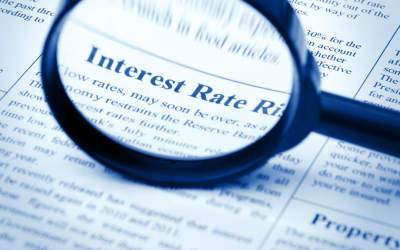Investing in property is a great way to diversify your investment portfolio and, when done right, will unlock the doors to a more financially secure future. When you purchase an investment property, you can improve on it through renovations so that you can sell it at a higher price or hold onto the property and rent it out, generating regular income.
Both methods can be quite lucrative. In fact, investing in property is one of the most common ways to build wealth in Australia outside of superannuation. However, there are a number of pitfalls to avoid in order to ensure your success. To help you, here are some of what you need to know to make property investment work for you.
Know the Local Area and Market
One of the most important aspects of successful property investing is knowing your market. The property market in Sydney is markedly different from the markets in Cairns and Kimberly, for example. Knowing your market gives you a better idea of how you should promote or renovate your property to make it more attractive to buyers or tenants.
Take the time to familiarise yourself with the local area as well, including the shopping, transportation, and entertainment options available nearby, and choose wisely. If a particular property does not have convenient access to the things residents need, you may have difficulty finding a buyer or tenant for your property.
Choose Wisely in Terms of Upgrades and Renovations
Upgrading your investment property can help you get a better return if you want to sell it or put it up for rent. Depending on your property’s condition though, some renovations are more beneficial or urgent than others. Assess and list down the parts of the property which must be fixed or repaired first, then proceed with the more cosmetic renovations. Prepare a detailed estimate of the costs involved as well to better budget your money. In general, improving the kitchen and bathroom gives good returns as these are the areas which people use most often and will particularly look at when they’re checking out your property.
If you can, pick a property that requires less major repairs (e.g. plumbing, foundation, structural integrity) to save time and to allocate more of your budget to marketing and important aesthetic upgrades that will increase its value. You also reduce the risk of getting complaints from tenants if you go with a property that’s already structurally sound. Aim to get the renovations done as quickly as possible, especially if you’re planning to rent out your property, but don’t do the cheapest option just because it’s quicker. The longer you spend on renovating, the more time you’ll be without a tenant, which means missing out on additional profits. Don’t forget to also factor in the interest you’ll pay on a home loan if you need to get one. This can eat into your profits quickly if you are not careful.
Choose the Right Tenants
You’ll need to take care in choosing the right tenants for your property. While it may be tempting to accept the first candidate who approaches you just to get someone in the door, doing so isn’t always the best strategy. Without a thorough background and credit check, you run the risk of renting to someone who has a history of being an unsatisfactory tenant or not paying bills on time. Although these checks will cost you a little bit of money, the investment will be worth it in terms of saving you from potential headaches and hassles down the road.
If you have several investment properties, managing them can become a full-time job in itself, or simply don’t have the time, you may be better off hiring a property manager to handle the day-to-day aspects and other management tasks for you. An experienced property manager can also help you with marketing your property, selecting tenants, handling maintenance requests, and checking health and safety compliance. This will reduce the stress and difficulty of owning rental properties.
Familiarise Yourself with Landlord and Tenant Rights
This is another area where a property manager can assist you, but you should still take the time to get to know the laws in your area yourself, especially those related to property investment. Neglecting this important step could put you at risk of a lawsuit, which will end up costing you far more in the long run. Learn about the rights you have as a landlord, as well as the rights your tenants have (if you’re renting property out). This way, you’ll know what to do and what not to do when it comes to property investment. You’ll also be well-prepared to defend yourself if legal issues arise.
Pick the Right Real Estate Agent
Real estate agents are licensed professionals who arrange and facilitate property transactions between buyers and sellers. If you want to sell property, hiring one can be helpful as a real estate agent can negotiate on your behalf towards a better deal. They can also assist you in other areas, such as completing and submitting real estate paperwork, coordinating open houses and meetings with potential buyers, and researching the local property market to determine the listing price for your property, among others.
That said, it’s important to be careful in picking a real estate agent. For starters, be sure that he or she is licensed—you don’t want to work with someone who turns out to be a scammer and negatively impact your reputation as a property investor. Check with your state’s licensing authority to ensure that you’re dealing with a licensed real estate agent. Talk to previous clients to know how the agent handled negotiations and if they were pleased with the results or if there were any complaints. You could also ask agents for a list of properties they’ve listed or sold to determine if the level of expertise or competency they offer is worth it.
Don’t Forget about Marketing
If you don’t market, fewer people will know about your property no matter how nice it is, reducing the likelihood of getting more enquiries and possibly better return. You could go the traditional route, such as posting ads on local newspapers or renting billboards. However, we recommend going digital as well since most people are already online, allowing you to reach a wider audience. Don’t worry about the cost—digital marketing doesn’t have to be expensive. A simple social media post can be the difference between getting more offers and settling for a mediocre deal, just because you’re tired of waiting.
Property investment needs thorough planning, consideration, time, and attention—as such, it’s always wise to seek guidance from the professionals. Clever Finance Solutions can help you in this regard. We have the experience, expertise, and dedication to steer you towards the right financial decisions, may it be in property investment or in finding the right loan for your needs. If you want to know more about how we can help you, please don’t hesitate to contact us or schedule an appointment.




